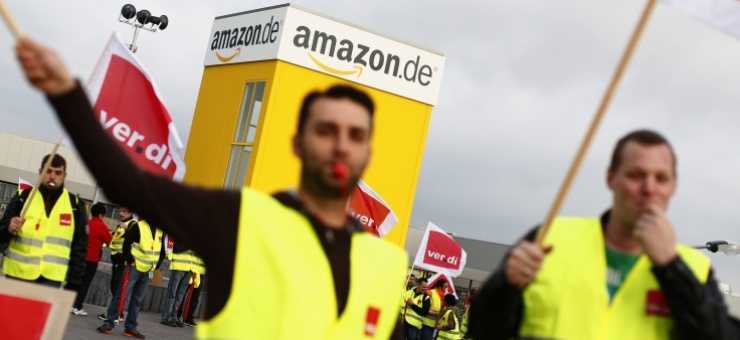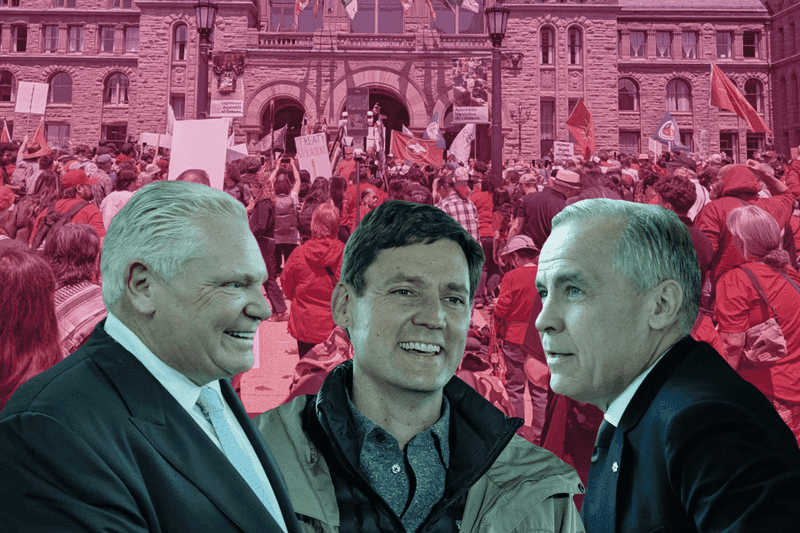
As much as Amazon is trying, solidarity doesn’t scare easily. Since a group of strikers, labour, environment, tax, data, privacy, and anti-monopoly activists from every corner of our planet and every link in Amazon’s supply chain formed #MakeAmazonPay last year, a lot has changed. Yes, Amazon is still one of the world’s biggest e-commerce corporations. Yes, Jeff Bezos, the richest man on earth, was launched into space and Amazon workers paid for it. And yes, the corporation that controls so much of the way people shop wants to control its workers even more tightly.
But as thousands went on strike to demand better pay and treatment, thousands more supported their efforts. As investigations in India, the U.S. and Europe over Amazon’s abusive and anti-competitive business practices started to look more and more problematic for the tech giant, more elected officials began asking questions. As workers in Bessemer, Alabama, joined BAmazon—the first large-scale unionization drive at an Amazon warehouse in the United States—more workers found the courage to fight Amazon on the shopfloor.
There’s no doubt that the workers, advocates, and elected officials coming together to #MakeAmazonPay have captured the world’s imagination and are changing the way the public perceives Amazon. From Bangladesh to Brazil, and from Spain to Seattle, we stood up against Jeff Bezos’ exploitation of workers, our communities, and our planet. Now, more and more people are asking more questions about Amazon´s brutal anti-union behaviour, antisocial tax-dodging practices, and obsession with control. And this Black Friday, we are witnessing how the movement pushing to change the rules of our economy and challenge corporate power is growing bolder and stronger.
Today unafraid Amazon workers are going on strike in Germany, France and Italy and solidarity actions are taking place in six continents across Amazon’s global supply chain.
Raking in profits from natural resource extraction; manufacturing; shipping and storing; as well as hording and controlling untold amounts of data; Amazon's empire spans the globe. But there is another way Amazon impacts us all: it takes workers, people, and the planet for a ride. When you shop at Amazon, you have fast and convenient delivery of an infinite array of items. But this frictionless consumer experience is powered by the grinding down of the real engine of the company’s one-click brutal model: workers.
We have been saying it all along. With its unrealistic and body-breakingproductivity goals, and intrusive employee surveillance, Amazon treats workers as disposable items. Now we know that Amazon’s staggeringly high worker turnover is not a flaw of the system—it’s the system.
Amazon may be everywhere, but we are too. And we have the power to Make Amazon Pay.
Christy Hoffman is General Secretary of UNI Global Union.
Leila Chaibi is Member of the European Parliament.
Casper Gelderblom is Movements Coordinator of Progressive International.





